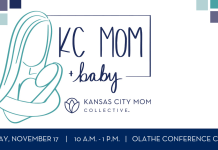One winter Monday afternoon, a nurse from our fertility clinic called to tell me that my pregnancy test was positive. I sat there at my home office desk for a couple minutes totally stunned before both the happiness and anxiety set in.
In my heart, something whispered: Yes, us.
In my brain something noted: Are we sure about that?
We spent the next several weeks navigating this new normal. Sure, there was the joy when another day successfully passed. But also, the anxieties of the medical realities of an IVF pregnancy first trimester. During those critical weeks, there was also a new and unexpected undercurrent: how people reacted to our pregnancy, brought into this world by doctors after a miscarriage and several rounds of treatment.
One day it came to an apex.
“So what’s your pregnancy like compared to a normal pregnancy?” I was asked. I didn’t know quite how to answer— though we’d just finished our supportive hormone injections, for the most part we were in the same boat as other soon-to-be parents. We worry, we love, we press forward with hope. We set up nurseries, we pick out names, we sit in awe through ultrasounds just like you.
But I knew what the question meant and that undercurrent was back: Your pregnancy isn’t normal. You are the other. Your experiences are lesser than mine.
Dear reader, if this is you — that if for some reason you don’t have the stereotypical “Three months of trying, two kids, one husband and a labradoodle” experience— you are normal and you are not alone. The world will make almost anyone feel like the other; whether you’re like us and went through IVF, maybe you’re a single parent, or perhaps you’re a part of a same-sex family.
Normal is a community in Illinois, not a universal lived experience. The common denominator of what makes a family is a hope that love can power and sustain healthy relationships.

















